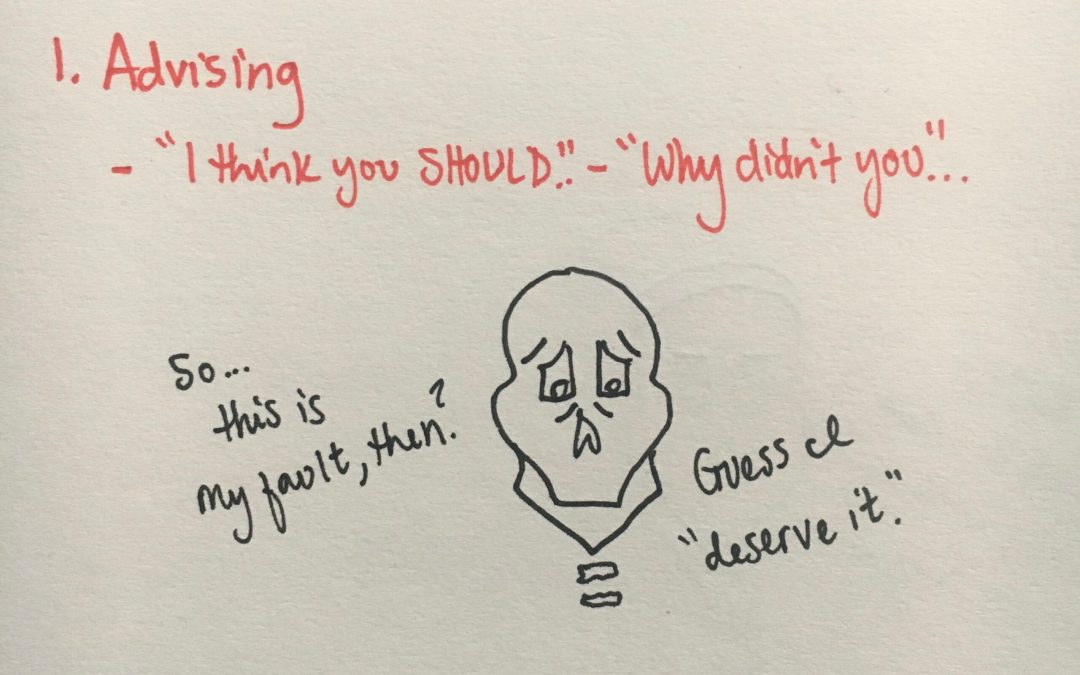Present? But what about what's next? whatsnextwhatsnextwhatsnext. Let's talk anxiety, ADHD, supervigilance,...


Present? But what about what's next? whatsnextwhatsnextwhatsnext. Let's talk anxiety, ADHD, supervigilance,...

Time interrupted by memories of embarassment or regret? Remember where unintended actions originate from and make your...

Baseless agitation, frustration, resentment, exhaustion, anxiety? A MF might be misaligned; recreating trauma patterns...

The question that fucks with us all, on both ends of the relationship dynamic. How do we define "abuse"? And how can...

This comprehensive overview of defense mechanisms provides valuable insights into psychological coping strategies and their impact on trauma recovery. By understanding the hierarchy of defenses, from immature to mature, individuals and therapists can better identify and address maladaptive coping mechanisms. The focus on action defenses and major image distortions offers a deeper understanding of how these psychological processes can affect mental health and interpersonal relationships. Recognizing these patterns is crucial for developing more adaptive coping strategies and fostering emotional resilience in trauma recovery.
![Bonus Video! Narcs showing their ASS [Abuse-Supporting Stupidity]](https://i0.wp.com/t-mfrs.com/wp-content/uploads/2023/07/Logo-Colored-Transparent-Background-deeper-no-words-e1690731629580.png?resize=433%2C500&ssl=1)
This episode explores the concept of “abuse-supporting stupidity” in narcissistic behavior patterns. It highlights how narcissists often engage in self-sabotaging behaviors due to their reliance on immature defense mechanisms and lack of self-reflection. The discussion emphasizes that abusers unintentionally create a disintegrated psychological environment, affecting both themselves and their victims. Understanding this process can help survivors make sense of their experiences and reduce self-blame for staying in abusive relationships. Recognizing these patterns is crucial for healing and breaking the cycle of abuse.
![Bonus Video! Narcs showing their ASS [Abuse-Supporting Stupidity]](https://i0.wp.com/t-mfrs.com/wp-content/uploads/2023/07/Logo-Colored-Transparent-Background-deeper-no-words-e1690731629580.png?resize=433%2C500&ssl=1)
"Concealed discharge of resentment / disappointment created by a lifetime of unmet needs." Let's talk about the depths...
![Bonus Video! Narcs showing their ASS [Abuse-Supporting Stupidity]](https://i0.wp.com/t-mfrs.com/wp-content/uploads/2023/07/Logo-Colored-Transparent-Background-deeper-no-words-e1690731629580.png?resize=433%2C500&ssl=1)
"Concealed discharge of resentment / disappointment created by a lifetime of unmet needs." Let's talk about the depths...
![Bonus Video! Narcs showing their ASS [Abuse-Supporting Stupidity]](https://i0.wp.com/t-mfrs.com/wp-content/uploads/2023/07/Logo-Colored-Transparent-Background-deeper-no-words-e1690731629580.png?resize=433%2C500&ssl=1)
This comprehensive slide deck exploration of mindfulness, metacognition, and traumatic training offers valuable insights for trauma recovery. By understanding how our past experiences shape our automatic responses, we can begin to rewire maladaptive behaviors. Mindfulness and metacognition serve as powerful tools for neutral self-observation, allowing us to question ingrained beliefs and make conscious decisions aligned with our present reality. The concept of “traumatic training” helps explain how childhood experiences can lead to lifelong patterns, while also offering hope for change through mindful awareness and intentional behavioral recalibration.

This podcast episode explores the complex relationship between trauma, CPTSD, and sexuality. It discusses how childhood narratives, early experiences, and adult adaptations can create conflicting internal “parts” that influence sexual behavior and attitudes. The episode introduces the concept of examining sexual dysfunction through the lens of Internal Family Systems, encouraging listeners to understand their sexual history and patterns for better integration and healing.

This podcast episode explores various forms of transference in relationships and mental health, including projection, monkey-barring, and displacement. It discusses how these cognitive patterns can affect interpersonal dynamics and therapy outcomes. The episode emphasizes the importance of self-reflection and critical thinking in recognizing and addressing these patterns for improved emotional intelligence and relationship health.

This podcast episode explores ten destructive responses to avoid in sensitive conversations, based on NonViolent Communication principles. It discusses why people use these responses and their impact on relationships. The episode provides insights into improving communication skills, especially during stressful holiday interactions with family. It emphasizes the importance of empathy, active listening, and self-awareness in fostering healthier interpersonal dynamics.
![Bonus Video! Narcs showing their ASS [Abuse-Supporting Stupidity]](https://i0.wp.com/t-mfrs.com/wp-content/uploads/2023/07/Logo-Colored-Transparent-Background-deeper-no-words-e1690731629580.png?resize=433%2C500&ssl=1)
Let's break down "behavioral strings" and see what we can learn about deprivation, triggers, and emotional spirals....
![Bonus Video! Narcs showing their ASS [Abuse-Supporting Stupidity]](https://i0.wp.com/t-mfrs.com/wp-content/uploads/2023/07/Logo-Colored-Transparent-Background-deeper-no-words-e1690731629580.png?resize=433%2C500&ssl=1)
And the conversation keeps rolling. Today, diving in deeper with parts and alters, straight from the mouths of the MFs...
![Bonus Video! Narcs showing their ASS [Abuse-Supporting Stupidity]](https://i0.wp.com/t-mfrs.com/wp-content/uploads/2023/07/Logo-Colored-Transparent-Background-deeper-no-words-e1690731629580.png?resize=433%2C500&ssl=1)
Enough of my droning. Let's hear from two of the community experts on parts and alters, talking together about their...

Ya know, I listen to a lot of stuff that is not directly mental health related. Actually, most of what I consume has...